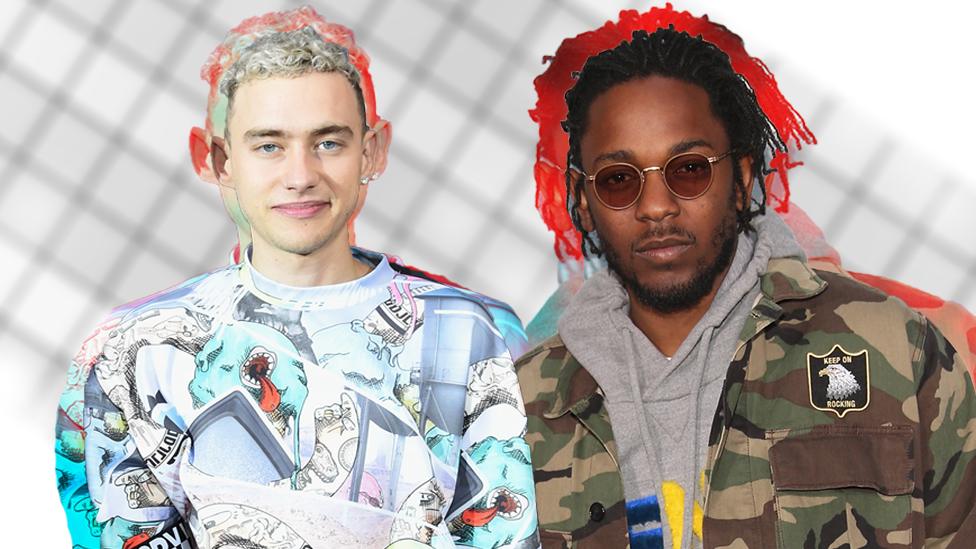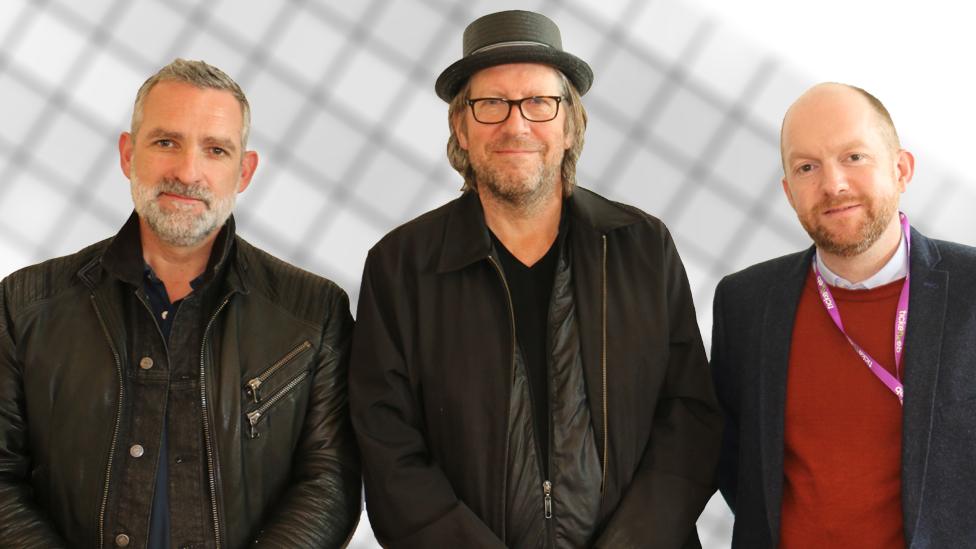It's time to talk about mental health in the music industry
- Published

Olly Alexander and Kendrick Lamar
"I have felt very low," admits Jamie MacColl, guitarist with Bombay Bicycle Club.
"Everyone thinks the life is so great, it can be difficult to speak out about it."
While he says he doesn't think he has suffered from depression, he is not alone in the industry from feeling low.
A recent survey found 60% of all musicians have had some sort of mental illness.
It seems only now people are starting to talk about it.
This year at The Great Escape Festival, external in Brighton, one of the main talking points is the well being of musicians.
Is it getting worse and if so what is being done about it?
"When you do a great gig you have an unbelievable high," Jamie explains.

Laura Mvula & Jamie MacColl
"It's the kind of high that you can never really re-created, it is just an hour of your day and the rest of the day you are tired, you are travelling.
"You can suddenly go back to being very low again, so it can become a bit of a vicious cycle."
More artists are starting to talk about it, Olly Alexander from Years & Years has been very open about his anxiety.
Kendrick Lamar has talked about severe depression and suicidal thoughts.
But it doesn't have to be that extreme to be an issue that a musician should get help.
Let us make the point here, every artist we have spoken loves their job and knows how lucky they are, but it doesn't mean they can't feel lonely, depressed and in need of help just like anyone else.
One of the main speakers at the talks here at The Great Escape is Andy Franks, he is one of the founders of the organisation Music Support, external.
They want everyone working in the industry to be able to ask for help, so that means looking after all the people around the artist too.
Andy is also a tour manager, having worked with The Rolling Stones, Robbie Williams and Coldplay.
He has more than 30 years of experience in the industry.
"I've found myself acting as a sort of on the road therapist on a number of occasions," he tells us.

Rory Bett, Andy Franks and Richard Robinson
"There is obviously an issue with drink and drugs because touring the world for major international artists is like a kid in a sweet shop," he says of his experience of life on the road.
"There are dressing rooms full of drink, there are people offering you drugs all the time and you take them.
"But the problems come when, obviously, that is all happening but also when you get home from a tour.
"It's like stepping off a moving train. You are coming back into the life of your family and trying to have some kind of normality and that can be really difficult."
Help Musicians UK are also at The Great Escape this year - they are a charity that have been going for more than 100 years.
They are here to launch a research project to find out the true scale of the problem.
"We are trying to get rid of the stigma," says Richard Robinson, Chief Executive of Help Musicians UK, external.
"To get people to start talking about it, that is why we are here.
"Get people to talk, find out their experiences so we can really begin to plot a picture of what support we can provide."
Find us on Instagram at BBCNewsbeat, external and follow us on Snapchat, search for bbc_newsbeat